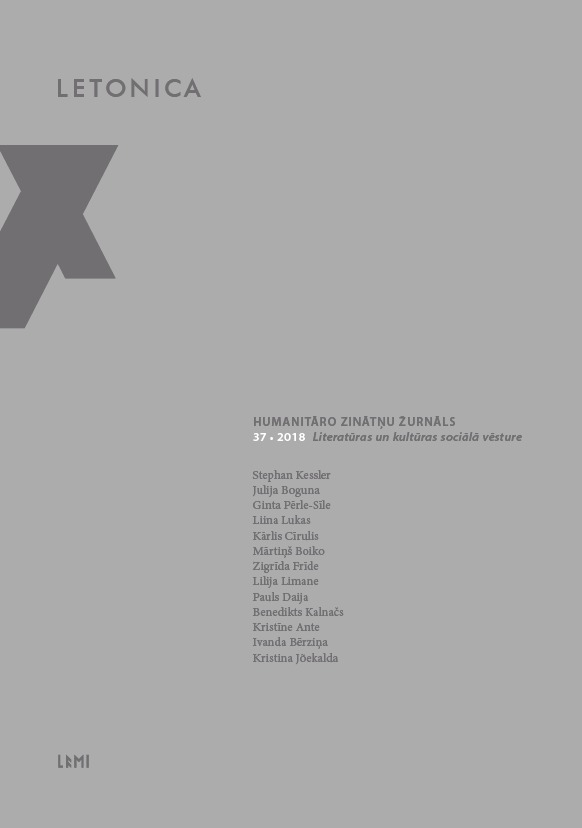Vācu zemnieki – kolonisti Latvijas teritorijā (1905.–1939. gads)
German Peasants-Colonizers in the Territory of Latvia (1905–1939)
Author(s): Ivanda BērziņaSubject(s): Pre-WW I & WW I (1900 -1919), Interwar Period (1920 - 1939), Migration Studies, Ethnic Minorities Studies
Published by: Latvijas Universitātes Literatūras, folkloras un mākslas institūts
Keywords: colonizers; German peasants; Irši (Hirschenhof) colony; the revolution of 1905; migration; nobility; Baltic Germans
Summary/Abstract: The article provides a brief insight into the history of resettlement German farmers-settlers in the contemporary territory of Latvia. The article describes two cases of migration: external colonization (the organizing of the Irši (Hirschenhof) settlement in the mid-18th century by Russian Empress Catherine II) and internal colonization (inviting German peasants of Russian Empire to settle in the territory of Latvia (mostly Kurzeme province) by Baltic German nobility, with an aim to establish German peasantry after Revolution of 1905. The article describes the reasons and the formal basis for migration, migration’s process and dynamics, the living conditions of settlers until First World War. The changes that have affected the settlers after the establishment of the Republic of Latvia has been explored, focusing on the settlers after the 1905 and their problems of citizenship acquisition, the aspects of the agrarian reform movement. Within the context of colonization process the Baltic German nobility and later Baltic Germans social-political organizations have been described in regard of their conduct during the colonization and the supporting role.
Journal: Letonica
- Issue Year: 2018
- Issue No: 37
- Page Range: 165-185
- Page Count: 21
- Language: Latvian

